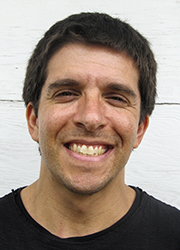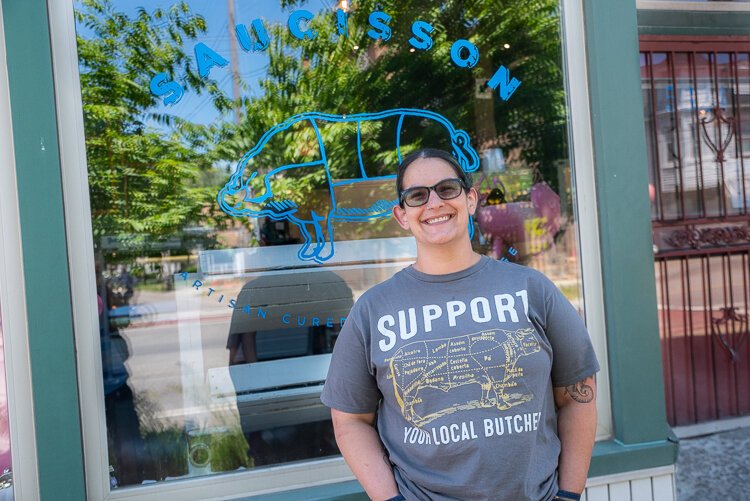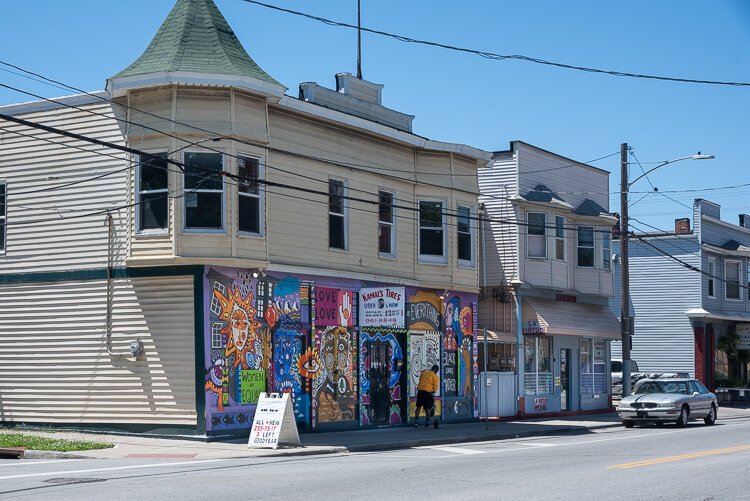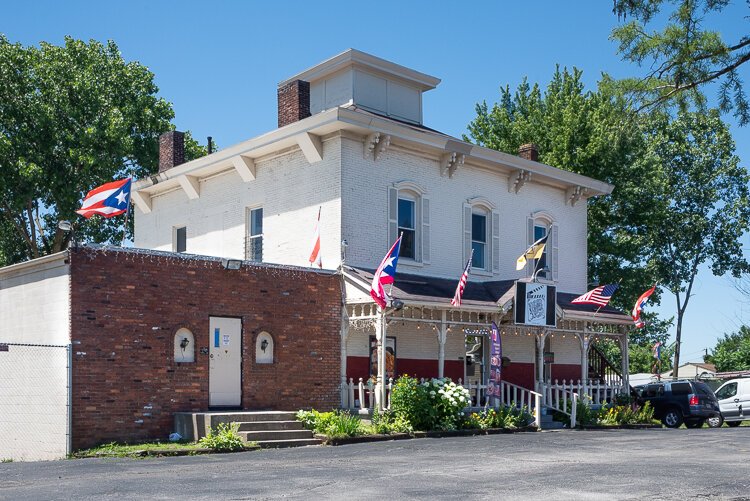A rising tide: SCORE works with Community Development Corporations to uplift local businesses
In a city where storefronts are still recovering from a COVID-19-driven decline, SCORE Cleveland—part of the nation's largest network of volunteer expert business mentors for small businesses—is partnering with area Community Development Corporations (CDCs) to offer free business consulting services to help local small businesses through this difficult time.
 Robert Cohen, co-chair of the nonprofit business-centered SCORE ClevelandThree such partnerships are now taking place in SCORE Cleveland’s offices at 1350 Euclid Ave., in affiliation with the Lee-Harvard, Slavic Village and Metro West CDCs,notes Robert Cohen, co-chair of the nonprofit business-centered SCORE Cleveland.
Robert Cohen, co-chair of the nonprofit business-centered SCORE ClevelandThree such partnerships are now taking place in SCORE Cleveland’s offices at 1350 Euclid Ave., in affiliation with the Lee-Harvard, Slavic Village and Metro West CDCs,notes Robert Cohen, co-chair of the nonprofit business-centered SCORE Cleveland.
Although small businesses are a key facet of regional growth, actually opening and sustaining a business comes with a long list of obstacles that are only exacerbated by the pandemic.
Connecting with CDCs aids SCORE in making inroads into an entrepreneurial landscape that needs strong support to grow and thrive.
“The idea was to have a program that takes place at a grassroots level,” says Cohen. “If you’re not talking to people on the ground who need these services, that doesn’t make sense. These organizations tell us what their citizens need, and then we can develop programming around those needs.”
SCORE connected to Lee-Harvard CDC almost a year ago, while the additional CDC relationships formed this year. The Cleveland SCORE office extends a suite of award-winning services to its small business charges—in 2021 providing communities 4,869 mentoring sessions, a 29% increase over 2020.
Additionally, SCORE hosted 82 workshops and webinars, enacted collaborative partnerships with 50-plus organizations, and enjoyed a 14% increase in new volunteers over the previous year.
These accomplishments earned SCORE Cleveland Chapter of the Year honors from the national office.Tripling its total services over two years has included increased involvement with neighborhood CDCs. Over the last 12 months, business-savvy volunteers have been instructing merchants on various aspects of their burgeoning enterprises—from marketing to digital skills—and the results have been positive.
“We have financial workshops as well, geared toward individuals without that background,” Cohen says. “They’ve opened a business and understand how to make money, but don’t understand cashflow and profit and loss. So, we’ve developed workshops around those topics.”
Do the right thing
SCORE receives about 10 to 20 new mentoring requests each month, with a portion of those asks now deriving from the Metro West CDC coverage area, which comprises the Clark-Fulton, Stockyards, and Brooklyn Centre communities.
The majority of Metro West’s small storefronts are minority-owned restaurants, convenience stores, bakers, barber shops, and beauty salons. Many of these shops are run by older people lacking a grasp on modern business practices, says Metro West small business coordinator Monserrat Monterrubio.
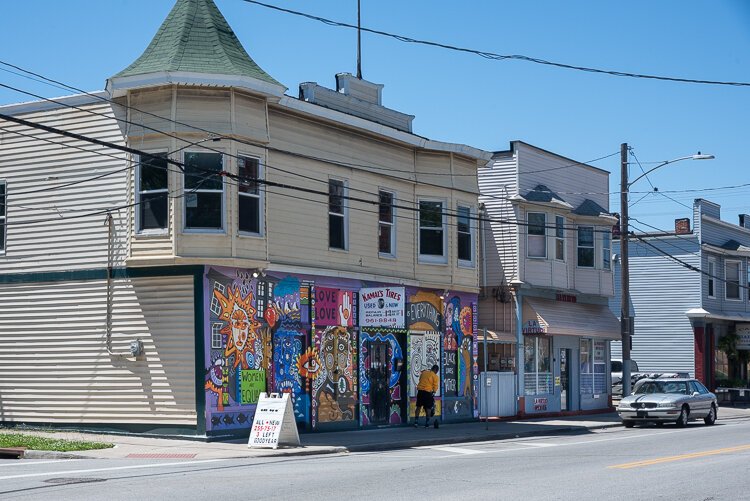 “The most challenging aspect for these owners is technology,” says Monterrubio. “During the pandemic, everyone wanted to do online shopping, and these folks didn’t know how to navigate that. We also have to face the fact that most of our families are from low- to moderate-income households, and with neighborhoods becoming gentrified, these businesses cannot sustain themselves.”
“The most challenging aspect for these owners is technology,” says Monterrubio. “During the pandemic, everyone wanted to do online shopping, and these folks didn’t know how to navigate that. We also have to face the fact that most of our families are from low- to moderate-income households, and with neighborhoods becoming gentrified, these businesses cannot sustain themselves.”
Rents throughout Metro West’s service area are projected to rise by four to five dollars per square foot in coming years, Monterrubio says.In the meantime, struggles with staffing are impacting area hospitality businesses, even as virus-related restrictions have lifted.
The Metro West CDC’s relationship with SCORE was catalyzed by demand for local resources around business creation or upkeep. Monterrubio surveys neighborhood owners, helping relay their personalized needs to SCORE via a meticulous application process.
For example, as Clark-Fulton has the densest population of Hispanic and Latino residents in Ohio (approximately 64%), Metro West will request Spanish-speaking advisors from SCORE’s pool of volunteers.
“With every new person that comes to us with a business idea, we refer them to SCORE to start building on the right track,” says Monterrubio. “We see a lot of people who don’t have a business plan, or don’t know enough about how to develop a financial plan. Once we refer them to SCORE, they can do everything at the same time, and do it right away.”
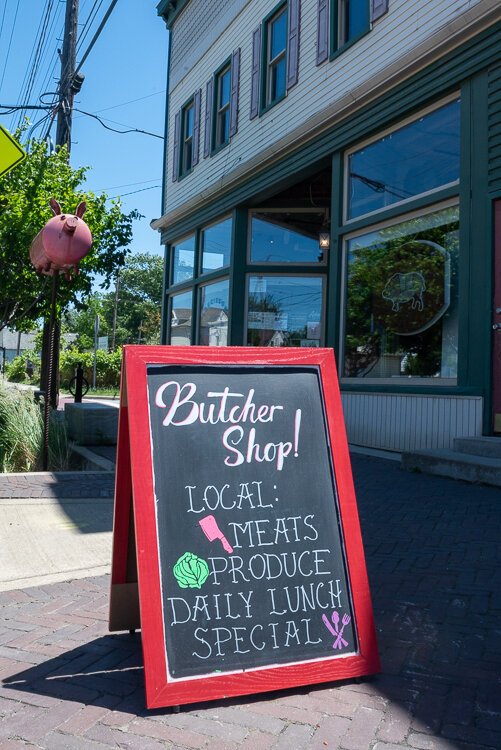 Assisting a community in need
Assisting a community in need
Meat shop and lunch spot Saucisson has operated from its storefront in Slavic Village for five years. Plans for growth within the neighborhood were short circuited by COVID-19, which flipped co-founder Melissa Khoury’s business model from wholesale to retail almost instantaneously.
“We were doing shelf stability testing and label design for grocery stores, then lost our wholesale accounts during the shutdown,” says Khoury. “The focus became on surviving until next week, so we had to pivot hard and fast.”
Online ordering and a strong relationship with local suppliers somewhat eased Saucisson’s transition. However, as retail sales began to level off after an initial increase, Khoury decided to harness SCORE’s newly minted program with Slavic Village.
The association is still in its early days, but Khoury is happy to have experts with SCORE research how her operation can improve.
“It gives me time to focus on our goals for the next five years,” says Khoury. “I wanted an outside perspective from business minds that weren’t just my friends. They might say it’s hard to navigate our website or bring up things we might be blind to because we’re so used to seeing them.”
Cleveland Neighborhood Progress (CNP)—an organization that already delivers support, training and capacity building for CDCs—is working with SCORE on its new endeavor, with a particular focus on Cleveland’s marginalized neighborhoods.
 CNP director of workforce development Michael ElliottCNP director of workforce development Michael Elliott points to SCORE’s unique volunteer-based service model as a boon for proprietors of all stripes.
CNP director of workforce development Michael ElliottCNP director of workforce development Michael Elliott points to SCORE’s unique volunteer-based service model as a boon for proprietors of all stripes.
“They have a nimble volunteer base,” Elliott says. “We wanted to work with a flexible partner that gets into neighborhoods and has a large pool of mentors to draw from. If business owners have a niche challenge, [the SCORE program] connects them to a volunteer who can meet that specialized need.”
Cohen of SCORE is proud to uplift the businesses that act as a neighborhood’s life’s blood.
“This is something we do because we get satisfaction out of it,” he says. “It’s great to get a thank-you letter from a client—that is our reward. Our bottom line is to get underserved communities the help they require.”
This story is part of FreshWater’s series, Community Development Connection, in partnership with Cleveland Neighborhood Progress and Cleveland Development Advisors. The series seeks to raise awareness about the work of 29 Community Development Corporations (CDCs) as well as explore the efforts of neighborhood-based organizations, leaders, and residents who are focused on moving their communities forward during a time of unprecedented challenge.
